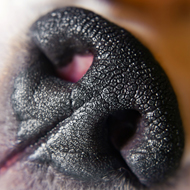
Around two tonnes of illegal tobacco apprehended
Sniffer dogs have helped local authorities in Wales to seize around half a million illegal cigarettes and two tonnes of illegal hand-rolling tobacco.
The initiative - labelled 'Operation Fetch' - took place in summer 2015 and aimed to target the import and supply of illegal tobacco within Wales.
The illegal tobacco trade presents a range of potential problems, including underage smoking, a compromise on the tobacco display ban and tobacco classification. Smoking is the number one cause of early death in Wales, with 6,000 people dying each year.
Additionally, it is estimated that around 11,000 children start smoking each year. This colossal figure is made possible through the illegal cigarette trade, which increases convenience and affordability of cigarettes and hand-rolling tobacco, attracting young people.
Despite the success of Operation Fetch, Mark Drakeford, minister for health and social services, commented on the ongoing problems: “I am very concerned about illegal tobacco because its affordability and availability threatens the health of children, making it so much easier for them to access tobacco. It also eliminates the price incentive for smokers to quit the habit.
“This is not a Robin Hood crime. It is criminality which deprives the public of vital revenue which is used to fund essential public and health services, including tackling the damaging impacts of tobacco itself but its effects extend far beyond that.
“We are determined to bear down on this illegal trade and safeguard public health. I would like to take this opportunity to commend all those involved with Operation Fetch and their endeavours to halt the trade in illegal tobacco.”
Matthew Cridland, chair of the Wales Heads of Trading Standards, was encouraged by the recent success but noted further collaborations were necessary to tackle this ongoing problem:
“Figures show 15 per cent of the tobacco consumed in Wales is illegal. That’s the equivalent of one million illegal cigarettes being smoked in Wales every day. The prevalence of illegal tobacco at this level presents a serious threat to health by undermining all of the controls designed to reduce consumption and prevent children from accessing tobacco.
“Because of this, tackling illicit tobacco is a key priority for Trading Standards in Wales. The results achieved in Operation Fetch are really encouraging and demonstrate the commitment of Trading Standards to this challenge.
“We want to work with all tobacco control partners to address not only supply but also demand for illegal tobacco and Trading Standards will continue to vigorously pursue all those who distribute and supply this product.”
In this case, the use of specially trained sniffer dogs gave authorities a major advantage in the discovery of illegal tobacco in Wales, however, there is a significant way to go if targets are to be met in the fight against the illicit tobacco trade.



 The Veterinary Medicines Directorate (VMD) is inviting applications from veterinary students to attend a one-week extramural studies (EMS) placement in July 2026.
The Veterinary Medicines Directorate (VMD) is inviting applications from veterinary students to attend a one-week extramural studies (EMS) placement in July 2026.